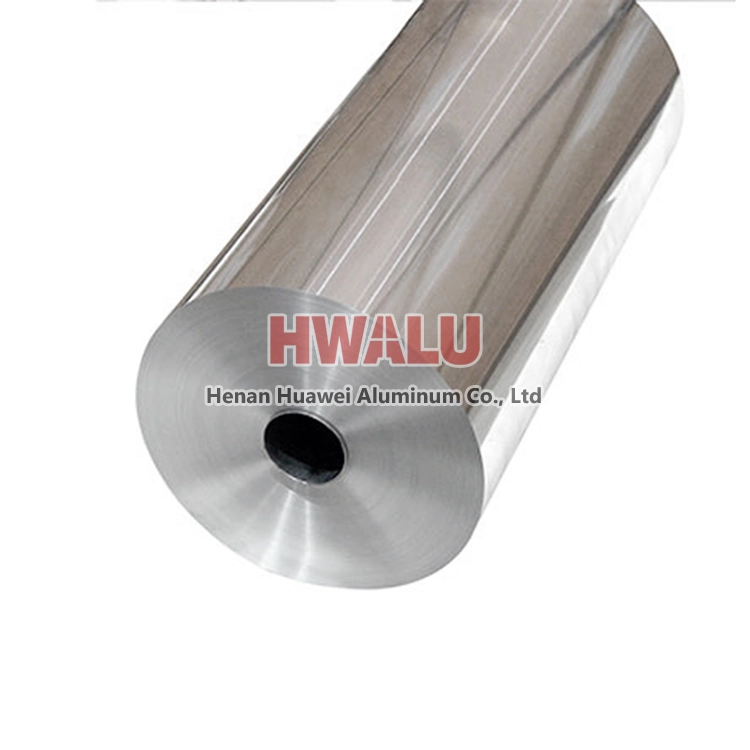What is aluminum foil for food Aluminum foil for food is a type of aluminum foil that is specifically designed and manufactured for use in food preparation, cooking, storage, and transport. It is commonly used in households and food service industries to wrap, cover, and store food items, as well as to line baking sheets and pans. Aluminum foil for food is available in various sizes, thicknesses, and strength ...
what is Industrial Aluminum Foil? Industrial aluminum foil is a kind of aluminium foil material used in industrial production, which is usually thicker and wider than ordinary household aluminium foil, and is more suitable for harsh industrial environments such as high temperatures and high pressure. Industrial size aluminium foil has good electrical conductivity, thermal conductivity, and corrosion resistanc ...
What is aluminum foil for sealing Aluminum foil for sealing is a kind of aluminum foil used for sealing packaging. It is usually composed of aluminum foil and plastic film and other materials, and has good sealing performance and fresh-keeping performance. Aluminum foil for sealing is widely used in the packaging of food, medicine, cosmetics, medical equipment and other industries. Aluminum foil for sealing i ...
so What is Aluminum foil grade 1235? 1235 Alloy Aluminum Foil is an aluminum alloy material commonly used in the packaging industry. It is as high as 99.35% pure, has good flexibility and ductility, and also has good electrical and thermal conductivity. The surface is coated or painted to increase its resistance to corrosion and abrasion. 1235 Alloy Aluminum Foil is widely used in food packaging, pharmaceu ...
How to define light gauge aluminum foil? Light gauge aluminum foil usually refers to aluminum foil with a thickness of less than 0.01mm, that is, aluminum foil with a thickness of 0.0045mm~0.0075mm. 1mic=0.001mm Example: 6 mic aluminum foil, 5.3 mic aluminum foil Aluminum foil with thickness ≤40ltm can also be called "light gauge foil", and aluminum foil with thickness >40btm can be called "heavy gau ...
For the capsule shell, because it is made of aluminum, aluminum is an infinitely recyclable material. Capsule coffee generally uses an aluminum casing. Aluminum is the most protective material at present. It can not only lock the aroma of coffee, but also is light in weight and high in strength. At the same time, aluminum protects the coffee from foreign substances such as oxygen, moisture and light. For cof ...
Product name: plain aluminum foil SIZE (MM) ALLOY / TEMPER 0.1MM*1220MM*200M 8011 O
The development of new energy vehicles is an important part of the low-carbon economy, and plays an important role in alleviating the contradiction between energy supply and demand, improving the environment, and promoting sustainable economic development. New energy vehicles are one of the industries that best reflect a country's technological development level, independent innovation capabilities and internatio ...
Aluminum foil is a packaging material with good characteristics. It has excellent barrier properties and can protect candies from moisture, light and air, helping to maintain freshness and extend shelf life. Aluminum foil also provides a good printing surface, which is very useful for branding and labeling. Therefore, aluminum foil can be used well for candy packaging. The most suitable aluminum foil alloy for ...
Foil winding, aluminum foil to be tensioned, in order to maintain a certain tension, smooth, flat winding coil, the thicker the aluminum foil requires greater tension, the maximum tension of the coil winding machine is limited, exceeding the maximum tension of the machine is dangerous, the tension is too small winding coil loose, can not ensure the size requirements. Therefore, here is not to say that you want to ...
Aluminum foil jumbo roll: Ideal for cooking or baking large dishes such as roasts, turkeys or baked cakes as it covers the entire dish with ease. Ideal for wrapping leftovers or storing food in the freezer, as you can cut the desired length of foil as needed. Aluminum foil jumbo rolls can last for a long time, which can save costs in long-term use. Small rolls of aluminum foil: More portable an ...








